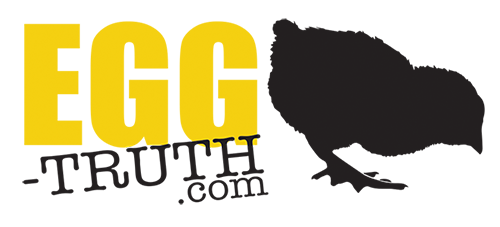In the realm of animal welfare standards, the European Union (EU) has earned a reputation as a global leader. Yet, this reputation doesn't uniformly extend to the conditions of laying hens across EU member states. Within the EU's integrated trade zone, consumers encounter a formidable challenge – deciphering the origins of the eggs they buy, particularly when utilized as ingredients.
As consumers within the European Union grapple with the challenge of tracing the origins of the eggs they purchase, a chilling exposé has emerged. In May and June 2023, two dedicated undercover activists, Oksana and Sasha, embarked on a harrowing journey into the heart of the continent's largest egg producer – Fermy Drobiu Woźniak, nestled in Wioska, Poland. Their six-week odyssey within the sprawling facility, which boasted 'enriched cages' as a supposed improvement over battery cages, bore witness to unimaginable suffering. Their account sheds light on the stark realities of egg production—here is what they found:
“‘Enriched cages’ were introduced as an alternative to battery cages. But for hens, this transition has been far from liberating. They continue to suffer in cramped and unnatural environments.”
Stress, aggression, cannibalism, cramped cages, unbearable heat, and swarms of fleas – these were the daily horrors revealed by the investigation.
Cramped Cages
The cages on the farm were incredibly cramped, with hens barely having room to move. Hens had to squeeze through crowded spaces, making it impossible for them to spread their wings. The lack of space was agonizing for these birds.Cannibalism and Feather Pecking
Stress from overcrowding led to aggression among the hens. They fought for space and access to the nest, resulting in feather pecking and even cannibalism. Weaker hens were often pecked to death by their fellow birds.Painful Deformities
The mesh floor of the cages caused severe foot deformities in many hens. Their toes bent painfully in the opposite direction, causing excruciating pain. No help was provided, and they were left to suffer alone.Slow and Inhumane Deaths
Injuries from the metal perches were common, and hens trapped there were left to die slowly from hunger and thirst. There was no procedure to help injured or sick hens, and everyday veterinary care was nonexistent. Defective cages proved deadly for many.
Just a few of the many snapshots taken by Oksana and Sasha during their undercover investigation. Source: Otwarte Klatki
Fermy Drobiu Woźniak, being the largest egg producer in Poland and the EU, raises questions about the conditions for hens across the industry. Across the European Union, there are, in fact, significant disparities in laying hen welfare. While some countries have made strides in transitioning to more humane systems, others lag. For instance, while Germany keeps the majority of their hens in cage-free systems (>60%), the neighboring countries of Poland, The Czech Republic, and Slovakia still keep over 70% of laying hens in cages.
A hen escaped the cages and stands in front of a pile of crushed eggs. Source: Otwarte Klatki
In our pursuit of ethical and humane eggs, the global landscape of egg production, as revealed in the linked map, sheds light on the challenges consumers face. This desire for better conditions for hens often remains unfulfilled, as demonstrated by the Polish undercover investigation. This investigation serves as a stark reminder that the transition from battery cages to ‘enriched cages’ may not always deliver the expected improvements for hens.
As consumers, we supported this transition with the hope of more ethical eggs, but it's crucial to consider whether we may have been inadvertently misled. We've explored the grim realities of these housing systems in prior posts, accessible here and here, offering an opportunity for us to reflect on our choices and demand genuine humane treatment for hens.
It's worth recognizing that the fight for improved conditions must go beyond the superficial shift from cages to 'cage-free.' It's an invitation to be more discerning when navigating the options on supermarket shelves. We understand that this can be challenging. It's a journey fraught with difficult decisions, and we've all been conditioned to believe in the status quo.
But let's take a moment to imagine this from the hen's perspective – a life filled with cramped spaces, aggression, and suffering. We believe that deep down, all of us share a common desire for a more compassionate world, not just for ourselves but for all living beings. The path to a cruelty-free life for hens, as well as a more compassionate world for all animals, begins on our plates. By embracing egg-free diets and supporting alternatives that respect the well-being of hens, we can take a significant step toward honoring their plea for a life free from suffering.
Please leave eggs off your plate.
Otwarte Klatki’s goal is to prevent animal suffering by introducing systemic social changes, documenting the conditions of industrial farming and education promoting positive attitudes towards animals.
Their latest investigation into Fermy Drobiu Woźniak can we found here (viewers discretion advised).
Juliane Priesemeister, Executive Director
Juliane worked almost a decade for an international corporation as an information designer. Generating compelling visual stories was her daily deed, but as much as she enjoyed the creative work the big corporation environment left her hungry for substance and impact.
When she started her yoga journey a few years ago the “do no harm” philosophy pushed her to align work with her personal ethics and values. Today she uses her omnibus skill set, including marketing communications, economics, and graphic design, to reveal the truth about the egg industry to consumers.













